Water In Armed Conflict And Other Situations Of Violence
17 Mar 2021 New YORK NY, United States
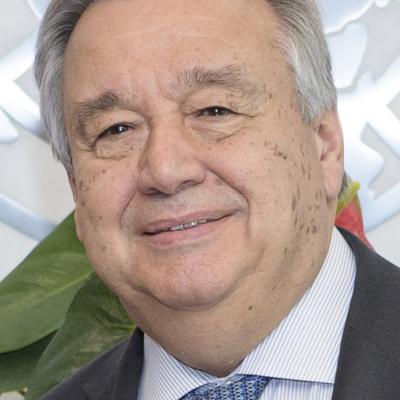
Conflict reduces access to vital resources like water and electricity,and also drives hunger
10 Feb 2021 WASHINGTON DC, United States
US Withdrawal Of Military Support To Saudis Offers Hope For End of War, Humanitarian Catastrophe
US President Joe Biden has announced that he is “ending all American support for offensive operations in the war in Yemen, including relevant arms sales”, in a move intended to bri...
International Water Law And Transboundary Cooperation
9 Mar 2021 VIENTIANE, Laos
"Drastic Cut": What Is China Doing With Mekong Dams?
Mekong River water levels between Jinghong hydropower station in China’s Yunnan province and the Mekong Delta in Vietnam fell in recent weeksto worrying levels, says the Mekong Riv...
4 Mar 2021 ARUSHA, Tanzania
Transboundary Cooperation In The Lake Victoria Basin
The East African Legislative Assembly (EALA) has urged the Council of Ministers of its parent organisation the East African Community (EAC) to push forward on transboundary harmoni...
12 Mar 2021 BRUSSELS, Belgium
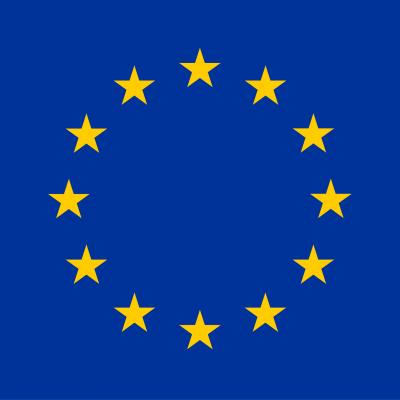
European Commissionis pushing hard for nature-based solutions and cross-border cooperation.
12 Mar 2021 WASHINGTON DC, United States
Broader International Mediation Sought In GERD Impasse
Egypt and Sudan have renewed their calls for a new negotiating mechanism mediated by four international parties to help resolve the long-running dispute with Ethiopia over the GERD...
4 Mar 2021 KABUL, Afghanistan
India Will Help Afghanistan Build Contentious Shahtoot Dam
The government of India has signed a $236 Million USD deal to build the Shahtoot Dam in Kabul which will provide fresh drinking water for roughly 2 million residents and support ir...
Knowledge-based, Data-driven Decision Making
21 Feb 2021 LONDON, United Kingdom
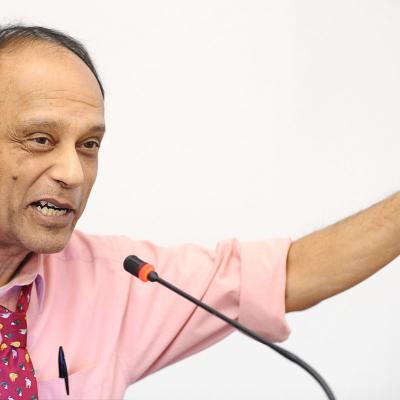
"Nature is our home. Good economics demands we manage it better,” said Cambridge University economist Professor Sir Partha Dasgupta on 2 February as he presented his highly anticip...
21 Feb 2021 BERLIN, Germany
Water Scarce Environments Facilitate Interspecies Virus Transmissions
Areas with water shortages experiencing mass mixed species congregations are particularly vulnerable to pathogen transmission between species, according to new researchA study publ...
12 Mar 2021 WASHINGTON DC, United States
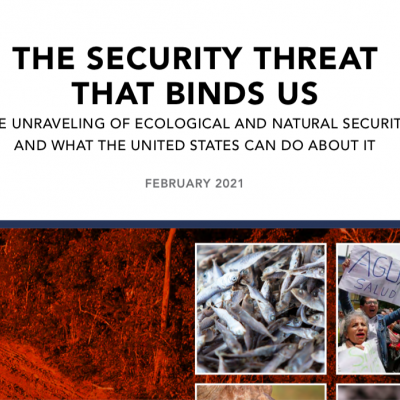
International water security issues shouldelevated within US foreign policy and national security activities as part of a wider case for rebooting US national security architecture...
People's Diplomacy And Intersectoral Water Management
4 Mar 2021 LONDON, United Kingdom
Nigerian Communities Can Sue Shell In UK Courts Over Decades Of Pollution
Two communities on the Niger Delta have won the right to sue Royal Dutch Shell (RDS) in English courts over decades of oil pollution that has damaged rivers, coastal areas and farm...
12 Mar 2021 LONDON, United Kingdom
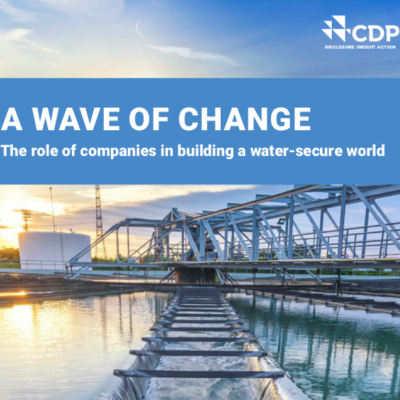
The financial impact of water risk could amount to $301 Billion USD versus $55 Billion USD to address those risks, according to a new report.
12 Mar 2021 WASHINGTON DC, United States
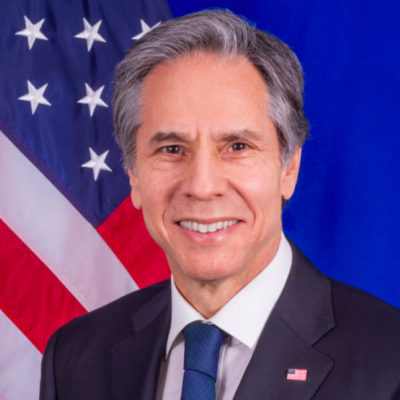
In a reversal of Trump-era policy, US secretary of state Antony Blinken has announced the intention of the Biden administration to “reengage immediately and robustly” with the coun...
16 Mar 2021 TAIPEI, China

Taiwan government orders reduction of water consumption in face of worst drought in 56 years. Microchip manufacturing sector hard hit.
4 Mar 2021 CUENCA, Ecuador
Ecuador City Votes To Ban Large-Scale Mining Projects
In the midst of February's presidential elections in Ecuador, residents of the country’s third-largest city, Cuenca, voted to ban future mining projects in five water systems.In a ...
17 Mar 2021 WASHINGTON DC
Biden To Review Trump Changes To Lead And Copper Rule
US administrationimplements 90-day delay inreview of the Revised Lead and Copper Rule (LCR) in drinking water to allow consultation period.
1 Apr 2021 NEW YORK NY, United States
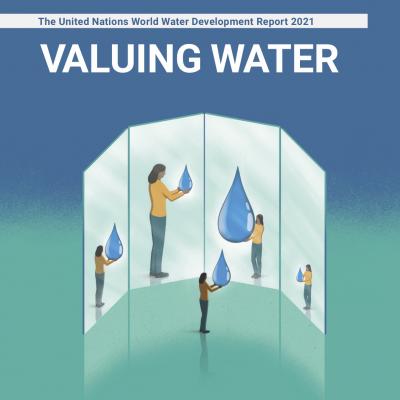
UN report emphasises the need to broaden the notion of the value of water beyond monetary concepts of price and cost. Supply and sanitation services, the economy, the environment, ...
12 Mar 2021 JOHANNESBURG, South Africa
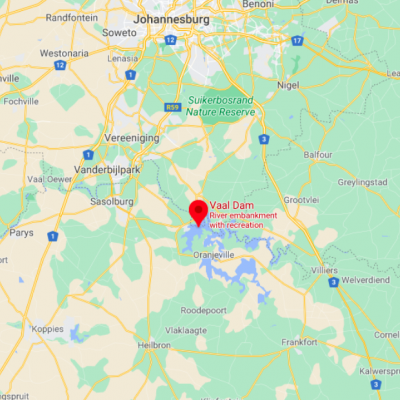
Areport by the South African Human Rights Commission (SAHRC) on extensive, multiyear wastewater and sewage pollution of the Vaal River system identifies multiple serious failures b...
17 Mar 2021 LONDON
New 2050 Vison For Water Sector In England
England's water industry seekspublic dialogue.
Finance For Water Cooperation
9 Mar 2021 DAR ES SALAAM, Tanzania
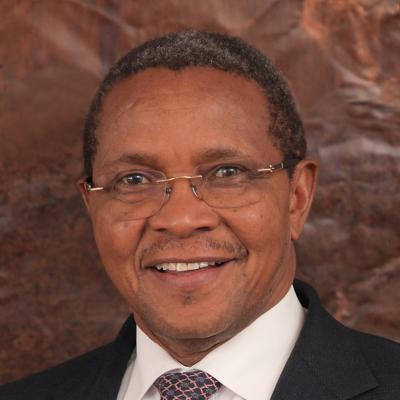
Guest Article - His Excellency President Jakaya Mrisho Kikwete, fourth President of the Republic of Tanzania, writes as Chair of Global Water Partnership's Southern Africa - Africa...
18 Mar 2021 NEW YORK NY, United States
UN Adopts Environmental-Ecosystem Economic Accounting Approach
Wetlands and water filtration ecosystems to be incorporated into calculations that impact policy and decision-making.
12 Mar 2021 DUBROVNIK, Croatia
$71.5 Million USD For Dubrovnik Water Systems
The European Commission has approved amulti-million dollar investment in Dubrovnik Waterworks from the Cohesion Fund.
Premium
New Mechanisms For Hydrodiplomacy
20 Mar 2021 VANCOUVER, Canada
Water Diplomat Voices: "The Value of Water Revisited"
On World Water Day 2021, Alexis Morgan discusses our framing of the value of water, and revisiting our language around this. Alexis is a global thought leader on water stewardship,...
16 Mar 2021 GENEVA, Switzerland
Women in Water Diplomacy: Middle East and North Africa - New Report
Issues of women’s participation and gender equalityin governance of shared waters have received insufficient attention.
12 Mar 2021 STOCKHOLM, Sweden
Philippines Georeserve Project Wins Water ChangeMakers Award
More than 350 individuals and groups from over 80 countries submitted their change journeys, highlighting the water decisions they have made to improve climate resilience.
24 Mar 2021 EDINBURGH, United Kingdom
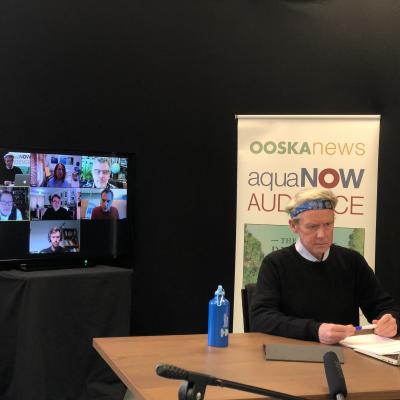
The water Diplomat and Scotland, the Hydro Nation, brought together panelists for a discussion on different ways we value water. View video footage. Happy World Water Day, 20...
30 Mar 2021 WASHINGTON DC, United States
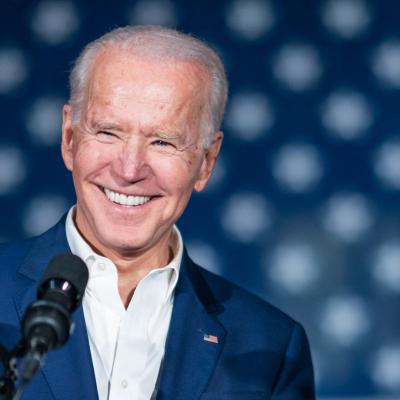
Key milestone on the road to COP26 focuses on six key themes with specific water impacts: infrastructure issues, event preparedness, nature-based solutions, resilience and global s...
Water In Armed Conflict And Other Situations Of Violence

“If you don’t feed people, you feed conflict”: Guterres
Briefing an 11 March UN Security Council meeting on the link between conflict and food security, Secretary-General Antonio Guterres made an impassioned plea for the Council to address conflict as the main cause of hunger around the world
“Conflict forces people to leave their homes, land and jobs, disrupts agriculture and trade, reduces access to vital resources like water and electricity, and so, drives hunger,” Guterres said, continuing, “Famine and hunger are no longer about a lack of food. They are now largely manmade, and I use the term deliberately.”
"At the same time, conflict forces people to leave their homes, land and jobs; disrupts agriculture and trade; reduces access to vital resources like water and electricity; and also drives hunger".
Framing starvation as a “war crime” that has been used as a tactic in conflict-torn countries such as Syria, South Sudan and Myanmar, the UN chief urged the Council to “take maximum action to seek accountability for these atrocious acts”.
He pointed out that, at the end of 2020, more than 88 million people were suffering from acute hunger due to conflict and instability, marking a 20 Percent year-on-year increase, and warned that this escalation is continuing in 2021.
Referring to the disappointing outcome of the UN’s recent aid pledging conference for war-ravaged Yemen and reductions in humanitarian aid resulting from the Covid crisis, he argued that “the solution does not lie in cutting aid to starving children.”
He went on to state that women and girls face a double risk, saying: “They are more likely to be forced from their homes by conflict, and they are more vulnerable to malnutrition, particularly when pregnant or breast-feeding. Girls who are hungry are at increased risk of trafficking, forced marriage and other abuses.”
In a funding plea to the same meeting, the head of the World Food Programme (WFP), David Beasley highlighted the crisis in South Sudan, which he visited in early February and where “7.2 million people face acute food insecurity or worse”. He described conditions in Western Pibor where mothers had resorted to feeding their children with the skin of dead animals or even mud, adding, “Their suffering is the result of widespread conflict and the unprecedented floods that came in 2019 and 2020. These people are in the crossfire of conflict, while bearing the brunt of the climate crisis.”
US Withdrawal Of Military Support To Saudis Offers Hope For End of War, Humanitarian Catastrophe
US President Joe Biden has announced that he is “ending all American support for offensive operations in the war in Yemen, including relevant arms sales”, in a move intended to bring to an end the six-year war that has “created a humanitarian and strategic catastrophe”.
Fighting between a Saudi-led Arab coalition backed by the US and UK, and Iranian-backed Houthi rebels has killed more than 100,000 people since March 2015, and displaced 3.6 million, with 80 Percent of the population in need of emergency relief and humanitarian assistance, according to the International Rescue Committee.
Water networks, power plants, airports, bridges, roads, schools and health facilities have all been destroyed in the fighting.
Described by the UN as the world’s worst humanitarian disaster, the crisis in Yemen is exacerbated by rampant disease, such as cholera and acute watery diarrhoea (AWD) resulting from crippling water shortages and limited or no access to basic sanitation facilities.
Already one of the world’s most water-scarce countries prior to the outbreak of war, water shortages have worsened due to attacks on the underdeveloped infrastructure as well as shortages in the fuel necessary to run pumping stations.
Meanwhile, the COVID pandemic has further heightened the urgent need for effective hygiene measures, while at the same time causing a steep drop in humanitarian funding, putting at risk efforts to provide water and sanitation to vulnerable communities.
Following Biden’s announcement, the US State Department confirmed that the US intends to revoke the terrorist designation assigned to Yemen’s Houthis by President Trump just days before he left office. The designation had threatened to hamper the flow of humanitarian aid into Yemen. The Iran-backed Houthi movement (Ansar Allah) unseated the government of president Abdullah Saleh in 2015, prompting the Saudis to intervene.
The Saudi authorities appeared unruffled by the Biden announcement, issuing a statement via the Saudi Press Agency confirming support for a political solution to the Yemen crisis and welcoming the US emphasis on supporting a diplomatic route.
Speaking to US media outlet NBC, Sanam Vakil, deputy director of the Middle East North Africa Programme at Chatham House said that facilitating the end of the war in Yemen is something Saudi Arabia also wants. “They are suing for peace at this point,” Vakil said.
International Water Law And Transboundary Cooperation
"Drastic Cut": What Is China Doing With Mekong Dams?
Mekong River water levels between Jinghong hydropower station in China’s Yunnan province and the Mekong Delta in Vietnam fell in recent weeks to worrying levels, says the Mekong River Commission (MRC).
The MRC has observed a 25 percent drop in average rainfall since last November, while outflow from Jinghong has been fluctuating wildly, falling to half its normal levels on several days in January.
The fluctuations have made it “challenging for authorities and communities to prepare for and respond to possible impacts”, says to Dr Winai Wangpimool, Director of the MRC Secretariat’s Technical Support Division.
In early January, China’s Ministry of Water Resources notified the four Lower Mekong countries that the outflow from Jinghong would be restricted to 1,000 m³/s from 5 to 24 January due to the maintenance of power grid transmission lines. The Ministry, however, did not specify the river water level before the outflow restriction nor the volume to be restored on 25 January.
“Continuing this flow pattern could have an impact on river transport, fish migration, agriculture and river weed collection,” Dr Winai said. “To help the Lower Mekong countries manage risks more effectively, we call on China and the Lower Mekong countries themselves to share their water release plans with us.”
Last year, China agreed to share year-round water level and rainfall data with the MRC and pledged to notify the MRC and its Member Countries of any abnormal rise or fall in water levels or discharge, and provide relevant information on factors that might lead to sudden flooding.
The significantly lower levels have also changed the river’s colour from its usual brown to blue-green. The lower flow means less sediment is being washed downstream and the resulting clarity of the water is leading to the formation of algae on the riverbed.
Experts at the MRC are concerned that the increased clarity could lead to changes in the river’s productivity, with less food available for aquatic insects, invertebrates and small fish.
The 12th longest in the world, the Mekong River runs through China, Myanmar, Laos, Thailand, Cambodia and Vietnam. Heavily dammed in China, changes to its flow have had a noticeable impact on the river’s ecology and on the downstream communities dependent upon it for food, fresh water and livelihoods.
Plans to build another dam in Laos have already brought widespread criticism from environmental groups and the Thai authorities.
Transboundary Cooperation In The Lake Victoria Basin
The East African Legislative Assembly (EALA) has urged the Council of Ministers of its parent organisation the East African Community (EAC) to push forward on transboundary harmonisation in respect of the Lake Victoria Basin.
A February report on the “On-Spot Assessment of the Lake Victoria Basin” was compiled by the Assembly's Committee on Agriculture, Tourism and Natural Resources (ATNR). Its findings include a recommendation that the capacity of the Lake Victoria Basin Commission (LVBC) be safeguarded through enhanced funding and improved human resources.
While highlighting progress made so far by the LVBC in raising living standards throughout the region, improving safety on the lake and formulating pollution contingency plans, the report points to “perennial under-staffing which is hampering the LVBC from achieving its set objectives”, with many key positions still unfilled.
Key issues also lamented in the report include unsustainable fishing and land-use such as construction, deforestation and farming on wetlands, as well as invasive plants species, over-release of water and abstraction from catchment rivers.
At a session of the EALA, representatives called for serious investments in the lake basin by the EAC partner states if the region was to develop economically, while decrying heavy donor dependency. Others urged the EAC Council of Ministers to look for alternative mechanisms to fund the LVBC.
The report notes that individual states in the Lake Victoria Basin have received funding from the United Nations Environmental Programme (UNEP) amounting to $5 Million USD in support of climate change adaptation, while Germany and the EU have provided $48.6 Million USD for high-priority investments under the Integrated Water Resources Management for Lake Victoria Basin programme.
The LVBC is a specialist institution of the EAC established to support economic growth in the region. However, it lacked the legal framework to act effectively as a corporate body until the passage in November by the EAC of a bill enshrining in law its capacity to harmonise partner states policies and laws in respect of the Lake Victoria Basin.

Ensuring "Availability And Sustainability Of Freshwater”
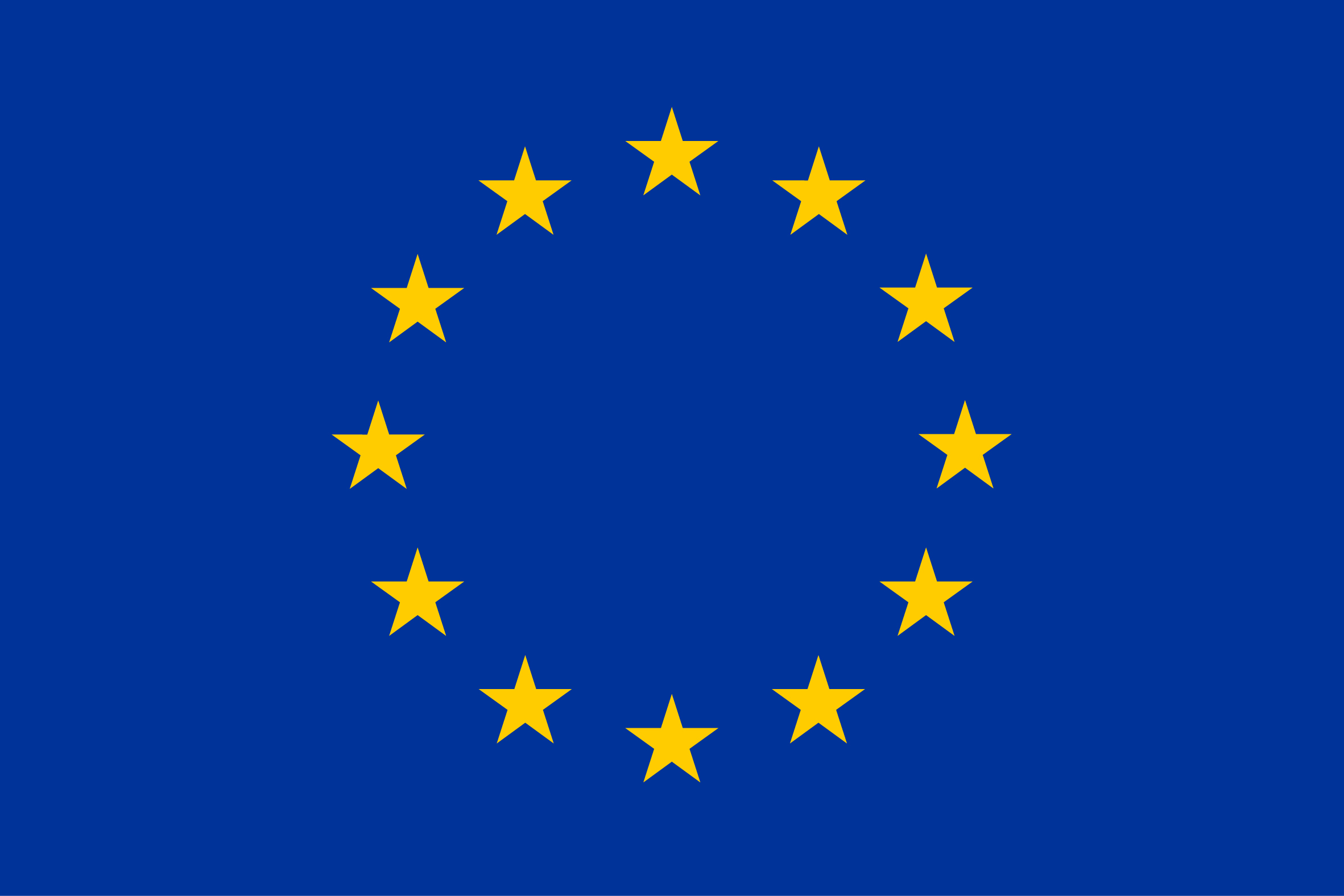
Water features highly in a new EU Strategy on Adaptation to Climate Change aimed at shifting the focus from examining the problem to implementing solutions.
Identifying the availability and sustainability of freshwater as “fundamental for climate resilience”, the Commission is seeking to prioritise transformational changes in all sectors through enhanced engagement of the Common Implementation Strategy (CIS) of the Water Framework and Floods Directives and is pushing hard for nature-based solutions and cross-border cooperation.
The strategy, announced in February, also recognises the need to sharply reduce water use through wider use of drought management plans, measures to increase the water retention capacity of soils and safe water use. It calls on member states to promote the transition to water-saving technologies and practices by setting a price that correctly reflects the value of water.
Turning its attention to water quality, the strategy states the Commission’s intention to help guarantee a stable and secure supply of drinking water through risk analyses, the development of water-monitoring technologies and ensuring minimum river flow.
Executive Vice-President for the European Green Deal, Frans Timmermans said: “The COVID-19 pandemic has been a stark reminder that insufficient preparation can have dire consequences. There is no vaccine against the climate crisis, but we can still fight it and prepare for its unavoidable effects. The impacts of climate change are already felt both inside and outside the European Union. The new climate adaptation strategy equips us to speed up and deepen preparations. If we get ready today, we can still build a climate-resilient tomorrow.”
Broader International Mediation Sought In GERD Impasse
Egypt and Sudan have renewed their calls for a new negotiating mechanism mediated by four international parties to help resolve the long-running dispute with Ethiopia over the GERD (Grand Ethiopian Renaissance Dam) project.
It comes as the US plans to review the freeze of $272 Million USD in aid to Ethiopia imposed by the Trump administration in response to its GERD actions.
Following a meeting on 2 March, Cairo and Khartoum reiterated that they are seeking the establishment of a four-party mediation team lead by the African Union (AU) and comprising the UN, the EU and the US. So far, separate attempts at mediation by the AU and the US have failed to secure meaningful progress or produce the legally binding framework desired by Egypt and Sudan.
The biggest current stumbling block hampering the restart of the stalled negotiations among the three parties is Ethiopia’s intention to commence the second phase of filling the dam on the Blue Nile in July at the onset of this year’s rainy season.
Egypt and Sudan issued a joint statement saying: “Ethiopia’s unilateral move to commence the second filling of GERD reservoir would pose a direct threat to the water security of Egypt and Sudan, especially with regard to the operation of Sudanese dams, and risk the lives of 20 million people in Sudan.”
Ethiopia remains unconvinced by the proposal for 4-way mediation. At a press conference in Addis Ababa on 3 March, a spokesperson for the Ethiopian foreign ministry said: “The tendency to invite various parties as mediators to the issue while the AU-led negotiation has not been finalised is demeaning the efforts of the AU," adding that Addis Ababa believes the AU-brokered negotiation will bring a “win-win solution” to all parties.
It was Ethiopia’s move in 2020 to start filling the 6 GW dam that prompted the Trump administration to freeze the US aid package on the basis that the action contravened the agreement brokered by the US a year ago. Speaking to reporters, a US spokesperson said that the policy is under review and that the administration is looking at renewing efforts to mediate.
Ethiopia was unhappy with the water-sharing aspect of the US agreement, which it said provided assurances of outflow for drought mitigation downstream without taking into account fluctuations in inflow. Ethiopia argues that the agreement conflated drought with water shortage – an important differentiation when it comes to determining responsibility for mitigation.
India Will Help Afghanistan Build Contentious Shahtoot Dam
The government of India has signed a $236 Million USD deal to build the Shahtoot Dam in Kabul which will provide fresh drinking water for roughly 2 million residents and support irrigation efforts across Afghanistan.
The Pakistan government continues to express concern about Shahtoot River interventions that will reduce water flow into their country by 16 to 17 percent. Dismissing such claims, Afghanistan argues that the Maidan river on which the dam will be built, contributes to less than 0.5 Percent of the Kabul River water flow at the Dhaka trans-boundary station.
India's funding was announced during a 9 February virtual summit between India's Prime Minister Narendra Modi and Afghan President Ashraf Ghani, with representatives from both parties signing an MoU.
Remarking on increasing droughts, rising population rates and a 60 Percent drop in rain and snowfall reported in 2018 in Kabul, President Ghani vowed to make efforts to improve water infrastructure and management in the capital city a national priority, with efforts largely directed towards the Shahtoot Dam initiative.
The Shahtoot project is scheduled to be completed in six years and will be built along the Kabul river basin. The dam is expected to measure 92 metres in height, with the capacity to hold 146 million cubic metres of water which will allow for the irrigation of 4,000 hectares of land across the country.
President Ghani thanked India for “offering this gift of water” and stressed the importance of the relationship between the two countries, stating: “India has always supported Afghan-led, Afghan-owned and Afghan-supported initiatives. Unified Afghanistan can fight any calamities. Success of Afghanistan is the all-around success of India."
The signing of the agreement came just one day after India sent more than 500,000 COVID-19 vaccines to support the fight against the pandemic in Afghanistan.
Knowledge-based, Data-driven Decision Making

Dasgupta Report: Leveraging Economics For Nature
"Nature is our home. Good economics demands we manage it better,” said Cambridge University economist Professor Sir Partha Dasgupta on 2 February as he presented his highly anticipated review, "The Economics of Biodiversity".
Water challenges feature high in the 600-page “Dasgupta Review”, which examines the economics of biodiversity and lays out a framework for a radical move away from economic thinking that measures progress in terms of global GDP.
Identifying water and water-based systems as inherent to the goods and services provided “for free” by the biosphere and unaccounted for in conventional economic thinking, the Review argues that nature is an asset and that biodiversity is what “enables nature to be productive, resilient and adaptable”.
Asserting that food, potable water and clean air are “no doubt universal needs”, it finds that humanity has “collectively failed to engage with nature sustainably, to the extent that our demands far exceed its capacity to supply us with the goods and services we all rely on.”
The Review examines market and institutional failures and accuses governments almost everywhere of paying people more to exploit nature than to protect it. Stating that “the solution starts with understanding and accepting a simple truth: our economies are embedded within nature, not external to it,” the Review calls on policy-makers to account fully for the impact of our interactions with nature and rebalance our demand with nature’s capacity to supply.
In the Review’s foreword, Sir David Attenborough said: “[The Review] shows us how, by bringing economics and ecology together, we can help save the natural world at what may be the last minute – and in doing so, save ourselves.”
Welcoming the Review, UK Prime Minister Boris Johnson said: “Protecting and enhancing nature needs more than good intentions – it requires concerted, co-ordinated action.”
The Review has been broadly welcomed by sustainability organisations, scientists and academics, and the UK Treasury has promised to examine the Review’s findings and respond formally in due course.
However, some commentators are casting doubt on the ability of nations to find consensus on a path forward, while others are suspicious of the ability of the structures and mechanisms that caused the problem to solve it.
UK journalist and environmental campaigner George Monbiot tweeted: “What Sir Partha Dasgupta promotes is a kind of totalitarian capitalism [that] extends the capitalist revolution even into our relations with the living world,” adding, “We cannot defend nature through the mindset that is destroying it.”
Water Scarce Environments Facilitate Interspecies Virus Transmissions
Areas with water shortages experiencing mass mixed species congregations are particularly vulnerable to pathogen transmission between species, according to new research
A study published this month in "Science of the Total Environment" identifies water resources as a main vector for mammalian virus transmissions.
A team of scientists lead by the German Leibniz Institute for Zoo and Wildlife Research (Leibniz-IZW) tested their hypotheses by sampling surface water and sediments in waterholes in Tanzania, Namibia and Mongolia and screened the samples for equid herpesvirus (EHV). EHV’s are DNA viruses that are known to remain transmittable in water for weeks under laboratory conditions and are transmitted among species in Africa and Mongolia – which is why EHV’s were chosen as the model for the research paper.
Professor Alex Greenwood, lead researcher in the study, said: "We knew from our previous work, particularly with zebras in Africa, that equids become stressed when they are forced to aggregate in the dry season. When we looked at the effects of stress in captive zebras, we could see that it was associated with shedding of EHVs into the environment. This suggested that just at the time when animals are forced to congregate, they are most likely to be stressed and shed viruses. The stress is acting as a sort of signal to the virus to get into the water to infect more individuals.”
The paper concludes by suggesting that EHV’s are not the only viruses that remain stable and transmittable in water and therefore, monitoring and screening waterholes in water scarce environments could be a useful tool in identifying the emergence of diseases in wildlife.
The findings of this paper highlight the importance of prioritising future water security efforts in order to prevent future pandemics from occurring.
The COVID-19 pandemic provides a current example of how viruses can jump a host species to humans.

International Water Security, US National Security
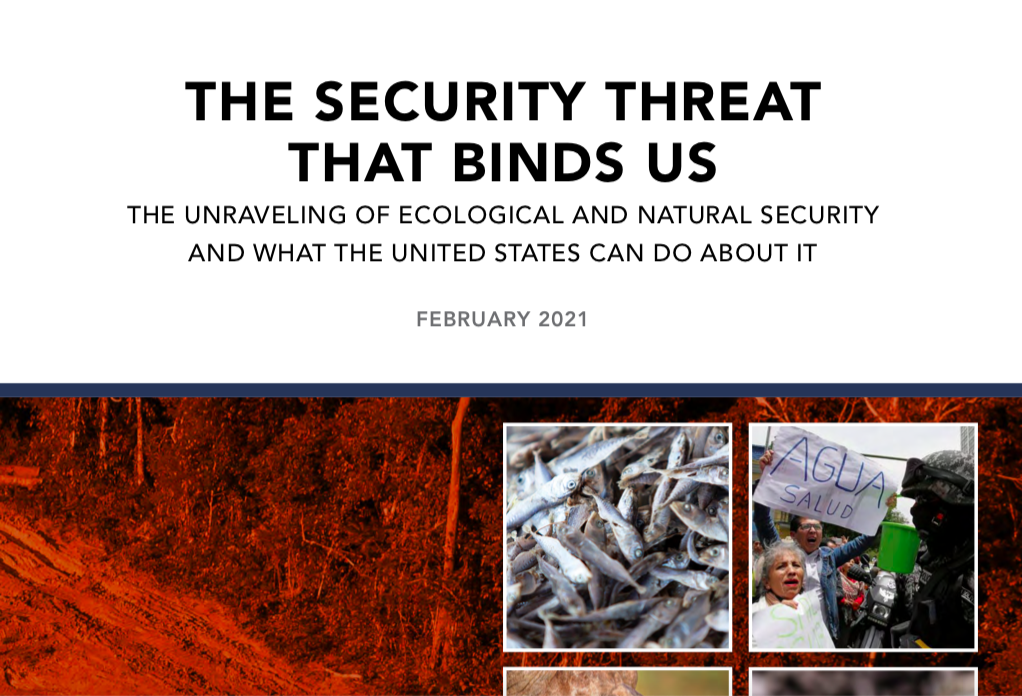
A new report calls for international water security issues to be elevated within US foreign policy and national security activities as part of a wider case for rebooting US national security architecture and doctrine in response to unravelling ecological and natural security.
Published 9 February by the Converging Risks Lab of the Council on Strategic Risks and funded in part by the Natural Security Campaign, the report entitled “The Security Threat That Binds Us: The Unraveling of Ecological and Natural Security and What the United States Can Do About It” focuses on the security implications of large-scale environmental destabilisation and offers recommendations for action on the part of the executive and legislative parts of the United States Government.
The report identifies water stress as a major threat for much of the world’s population and raises urgent concerns about the increase in water conflicts, asserting that inadequate government action “can contribute to political instability, social disruption and state instability and conflict, while serving as an impetus or accelerant for human migration and population displacement”, pointing at the same time to the “weaponising of water” by some insurgent groups.
In defining policy recommendations, the report’s authors relied upon three fundamental precepts: that centralised action was necessary to achieve the necessary scale, that science and scientific expertise is critical to the response and that the US government must “rethink which federal agencies get a seat at the national security table, which could help offset the tendency of the United States to view national security through a narrow defense or military lens”.
John Conger, Director of the Center for Climate and Security, Chair of the Climate and Security Advisory Group (CSAG), Senior US Advisor to the International Military Council on Climate and Security (IMCCS), and Former Principal Deputy Under Secretary of Defense at the US Department of Defense, said: “Since the emergence of COVID and the new focus that has been placed on non-nation-state security threats, few reports have made me think so deeply about the complex web of policy issues upon which our own national interests depend. Climate change is a piece of this story, but the authors illustrate the broader ecological narrative in a way that is both compelling and illuminating.”
People's Diplomacy And Intersectoral Water Management
Nigerian Communities Can Sue Shell In UK Courts Over Decades Of Pollution
Two communities on the Niger Delta have won the right to sue Royal Dutch Shell (RDS) in English courts over decades of oil pollution that has damaged rivers, coastal areas and farmland as well as health, The UK Supreme Court overruled a previous Appeal Court finding that there was no real issue to be tried.
Although Shell does not dispute the fact of the pollution, it had argued it could not be held responsible in English courts for the actions of its Nigerian subsidiary Shell Petroleum Development Co. (SPDC).
The communities of Ogale and Bille, with a combined population of more than 40,000 largely dependent upon fishing and farming, assert that RDS had a duty of care because it exercises significant control over material aspects of SPDC’s operations.
“This (February 2021) Supreme Court judgment gives real hope to the people of Ogale and Bille who have been asking Shell to clean up their oil for years. We hope that now, finally, Shell will act,” said Daniel Leader, partner of legal firm Leigh Day which represents the claimants.
“But it also represents a watershed moment in the accountability of multinational companies. Increasingly impoverished communities are seeking to hold powerful corporate actors to account and this judgment will significantly increase their ability to do so,” Day added.
RDS expressed its disappointment with the decision, implying that the oil spills at issue may have been the result of theft, criminal refining or sabotage, adding: “Regardless of the cause of a spill, SPDC cleans up and remediates. It also works hard to prevent these sabotage spills, by using technology, increasing surveillance and by promoting alternative livelihoods for those who might damage pipes and equipment.”
The villagers say they “have suffered systematic and ongoing oil pollution for years because of Shell’s operations in Nigeria, including the pollution of their drinking water”, and maintain there is no prospect of obtaining justice in Nigeria.
In its ruling, the UK Supreme Court cited a similar case in Zambia from 2019 involving the actions of mining company Verdanta.
The ruling is the second this year to find against Shell’s operations in Nigeria. At the end of January, the Dutch Court of Appeal in The Hague held RDS liable for the consequences of two oil leaks in the villages of Oruma and Goi that occurred in 2004/2005.
The court ruled that Shell failed to prove beyond reasonable doubt that the leaks were the result of sabotage and was therefore liable for the damage caused. Compensation will be determined in a subsequent process.
In the case of a third leak in the village of Ikot Ada Udo, sabotage was established. However, the matter of Shell’s liability remains open and the case continues.

Companies Must Take Bold Action To Transform Business Models
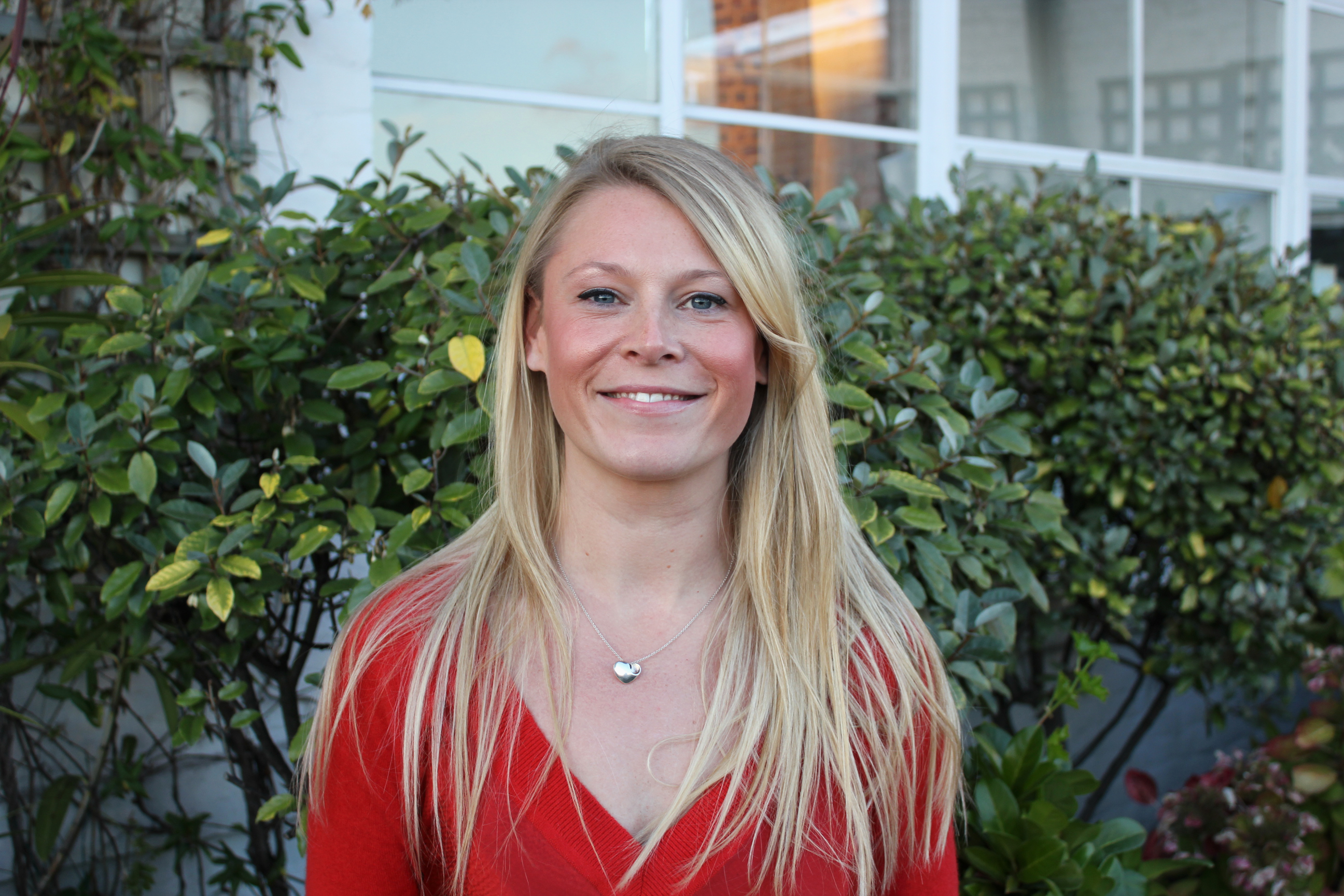
The financial impact of water risk could amount to $301 Billion USD versus $55 Billion USD to address those risks, according to the 2020 Global Water Report issued 3 March by the Carbon Disclosure Project (CDP).
The report also notes progress in water use, with two thirds of the nearly 3,000 participating companies saying they are reducing or maintaining water withdrawals, while more than half are monitoring the quality of their wastewater discharges.
While acknowledging the progress detailed in this year’s disclosures, Cate Lamb, Global Director of Water Security at CDP called for much more transformative action, saying: “As investors pay closer attention to companies’ management of water risks, CDP is calling for all companies to develop ambitious targets to reduce water withdrawals and eliminate water pollution, including net-zero water targets. Companies must take bold action now to transform their business models.”
However, it finds that just 4.4 Percent of businesses are making progress against water pollution reduction targets.
Among the 12 sectors covered by "A WAVE OF CHANGE: The role of companies in building a water-secure world", the scale of risk versus response is particularly stark in the manufacturing and food, beverage and agriculture sectors. In manufacturing (the largest sector), 1,375 respondents reported the potential financial impact of water risk at $191 B Billion USD, against a cost of response of $2.89 Billion USD. In food, beverage and agriculture, 414 respondents reported figures of $19.59 Billion USD and $1.10 Billion USD respectively.
Typical water-related risks identified are water scarcity, flooding and pollution.
Only two sectors, power generation and infrastructure, reported higher costs of response relative to risk.
In relation to water withdrawals, the CDP found reason for optimism, with 1,343 (64 Percent) of those companies with a high dependency on water reporting that their withdrawals were much lower, lower or about the same compared with last year. However, one fifth reported an increase.
The report reserved its greatest criticism for the “stagnation” of progress against pollution, stating: “many companies remain unaware of these [pollution] issues, let alone take responsibility for addressing them,” urging companies to “look beyond the business-as-usual responses and pursue plans to grow differently”.
Addressing the sufficiency of corporate action in response to water risk, the report states: “Not all water-related investments are equally effective in improving water security”. It identifies the two most frequent responses to water risk across all regions and sectors as “adopting water efficiency, conservation, reuse and recycling measures” and “developing flood emergency plans”.
Meanwhile, the greatest expenditure is on capital investment, addressing pollution, investment in new technology and infrastructure, and regulatory compliance.
While the CDP is encouraged by investment in technological solutions, it is concerned that “only a small fraction of companies are developing new products and markets in response to water risk, suggesting that opportunities for transforming business models are not being seized”.

US Re-engages With “Flawed” UN Human Rights Council
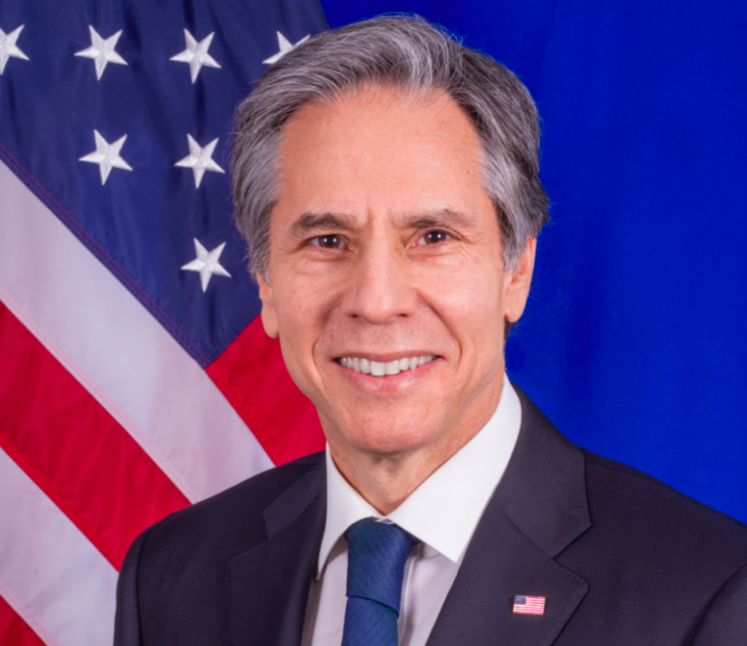
In another reversal of Trump-era policy, US Secretary of State Antony Blinken has announced the intention of the Biden administration to “reengage immediately and robustly” with the Council.
The Trump administration withdrew from the UNHRC in 2018 citing entrenched bias against Israel and concern at the council’s willingness to admit nations which were themselves frequent abusers of human rights.
Announcing the return of the US to the table, Blinken acknowledged oft-cited failings of the UNHRC, saying: “"We recognize that the Human Rights Council is a flawed body, in need of reform to its agenda, membership, and focus, including its disproportionate focus on Israel."
Nevertheless, he argued that the Trump withdrawal “did nothing to encourage meaningful change, but instead created a vacuum of US leadership, which countries with authoritarian agendas have used to their advantage.”
A spokesperson for UN chief António Guterres welcomed the decision, saying: “The United Nations looks forward to hearing the crucial voice of the United States across the Council’s urgent work.”
The return of the US to the UNHRC, initially as an observer, comes just weeks after the Council’s Special Rapporteur on the human rights to safe drinking water and sanitation, Pedro Arrojo-Agudo, issued an urgent call in response to water being traded for the first time on the Wall Street Futures market, saying it “shows that the value of water, as basic human right, is now under threat.”
“You can’t put a value on water as you do with other traded commodities,” said Arrojo-Agudo. “Water belongs to everyone and is a public good. It is closely tied to all of our lives and livelihoods, and is an essential component to public health.”
The human right to safe drinking water was first recognised by the Human Rights Council and the UN General Assembly in 2010.
“Water has a set of vital values for our society that the market logic does not recognize and therefore, cannot manage adequately, let alone in a financial space so prone to speculation,” added Arrojo-Agudo.
Arrojo-Agudo has called for “a global debate on the values of water that UN Water proposes for the next World Water Day, on 22 March 2021, under the slogan #water2me.”

Drought Hits Lagging Chip Production In Taiwan
Taiwan’s crucial microchip sector is under threat from the country’s worst drought in 56 years. The government has issued assurances that there are sufficient water supplies to keep the industry going until late May, when it hopes monsoon rains will alleviate the looming crisis. Meanwhile, it has urged companies to reduce water consumption by 7 to 11 percent.
Speaking to the media, the head of the country’s Ministry of Economic Affairs, Wang Mei-hua, said that Taiwan has seen just 20 millimetres of rain so far this spring, compared to an average of 100 millimetres. This follows a complete absence in 2020 of the typhoons that would normally restock the island’s water supplies. Hsinchu City, home to several major chip makers, received just half its usual rainfall in 2020.
With water levels at six of Taiwan’s reservoirs standing at between 10 and 15 Percent, the world’s largest chip maker TSMC is already reportedly buying water by the truckload to prop up manufacturing operations that are already struggling to meet global chip demand in major sectors such as automobile manufacturing.
Last month, Volkswagen criticised the semiconductor supply chain for bad planning in its response to the recovery in automotive manufacturing following last year’s coronavirus shutdowns. The world’s second-largest carmaker is one of several forced to curtail vehicle production due to chip shortages.
The supply issues have prompted several countries, including the US, to look closely at ramping up their domestic chip supply chains to reduce dependency on Taiwan, which is one of the world’s biggest providers of subcontract chip fabrication (fabs). Taiwan has already been forced to defend the resilience of its chip making sector in the face of a push by China to develop its own semiconductor industry.
Making microchips is a thirsty business. According to TSMC’s own figures, it needs 156,000 tonnes of water a day, a large proportion of which is Ultra Pure Water (UPW), which is thousands of times purer than drinking water and so clean that it is regarded as an industrial solvent.
In its most recent social responsibility report, TSMC says it reused 86.7% of its water (133.6 million tonnes) in 2019 and saved a further 7.93 million tonnes.
Ecuador City Votes To Ban Large-Scale Mining Projects
In the midst of February's presidential elections in Ecuador, residents of the country’s third-largest city, Cuenca, voted to ban future mining projects in five water systems.
In a 7 February plebiscite, voters turned out to protect the region’s clean water resources. The area in which the ban covers is home to more than 580,000 residents and spans over 3,100 square kilometres of land.
The vote count showed that the motion to ban future mining projects received a landslide victory with each of the five questions on the ballot receiving almost 80 Percent support in favour of the ban.
The mining ban will have economic consequences for the South American nation, as Cuenca’s extensive reserves of gold, silver and copper have been a driver of foreign investment. According to Ecuador's Ministry of Energy and Non-Renewable Natural Resources, mining products accounts for 4.4 Percent of the country’s exports and are the sixth most exported product type.
Environmentalists and the city of Cuenca have long petitioned against the approval of mining projects near water sources, particularly two mining projects close to El Cajas National Reserve, the city’s largest water source, which are currently in exploration phase.
What remains unclear is how the results of the vote will be applied to mining projects that have already been granted approval prior to the referendum, with pro-mining unions and environmentalists debating what the “operational phase” refers to.
Ecuador's Constitutional Court is expected to release additional details of the ruling in April.
Biden To Review Trump Changes To Lead And Copper Rule
US President Joe Biden's administration has announced a 90-day delay of implementation of the previous Trump administration update to the Revised Lead and Copper Rule (LCR) that governs lead and copper in drinking water.
The Trump rule would have shortened the time for notification of exposure to lead in municipal (mostly) water pipes but would also have allowed a longer time for utilities to replace the lead service lines. Some critics argue that this rule is very weak and would allow lead-tainted pipes to remain for another 30 years versus the 14 years under the previous rule. US States, community activists and advocacy groups are challenging this rule in a number of courts.
The Biden decision to delay implementation will allow for longer consultation, particularly on the replacement portion of the provision. Under consideration is a three-year deadline to implement compliance with any new regulation.
Lead in drinking water can be extremely toxic and even more so for childrens’ health where lead exposure has been linked to causing brain and nervous system damage, slowed growth and development, and learning, behaviour, and motor skill issues.
Radhika Fox, the agency’s acting assistant administrator for water, has indicated that the additional review period will allow for greater public participation, including from those who have already been affected by such contamination.
In a statement, the US Environmental Protection Agency (USEPA) indicated that it is committed to following the best science to address the lead issues in drinking water. The agency has also committed to maintaining a flexible approach in learning from its stakeholders and adapting solutions that meet local needs.
“It’s promising that EPA is finally committing to take a hard look at fixing the badly-broken Lead and Copper Rule. The Biden Administration has the opportunity to make history by ending the crisis of lead-contaminated water, which is a public health disaster more than a century in the making,” commented Erik D. Olson, senior strategic director for Health at the Natural Resource Defense Council.

Valuing "Blue Gold", Our Most Precious Resource
“Water is our most precious resource, a ‘blue gold’ to which more than 2 billion people do not have direct access. It is not only essential for survival, but also plays a sanitary, social and cultural role at the heart of human societies,” said UNESCO director-general Audrey Azoulay, launching the UN’s annual World Water Development Report (WWDR) on World Water Day 2021.
Entitled “Valuing Water” this year’s report emphasises the need to broaden the notion of the value of water beyond monetary concepts of price and cost. It examines the value of water under five headings: supply and sanitation services, the economy, the environment, cultural values and the so-called hydraulic infrastructure.
“Many of our problems arise because we do not value water highly enough; all too often water is not valued at all,” said chair of UN-Water Gilbert Houngbo, adding: “The time has come for stakeholders to identify, articulate and share perspectives of the values of water.”
The 206-page report recognises widely varying approaches to valuing water across, and even within, different contexts as well as the often intangible nature of some sociocultural values that defy quantification, concluding “Consolidating the different approaches and methods for valuing water across multiple dimensions and perspectives will likely remain challenging.”
Nevertheless, it stresses that valuing water “remains an absolutely necessary step in addressing water-related challenges worldwide. Otherwise, water will remain poorly accounted for and, thus, routes to its better management harder to identify”.
For instance, UNESCO estimates it would cost $114 billion per year to provide universal access to safe drinking water and sanitation in 140 low- and middle-income countries, but points out “the multiple social and economic benefits of safe water are difficult to evaluate”, asking: “How do we quantify the meaning of the 443 million schooldays missed annually due to water-related diseases?”
“We must all recognize the multifold value of water and take action to conserve this basic resource, the resource which gives our planet its unique colour,” said director-general Azoulay.
This echoes the final summation of WWDR, which points to the universality of water and its incalculable and limitless value, stating: “This is perhaps best illustrated by the widespread enthusiasm for the idea that traces of water can be found on Mars, or the fact that we think of water and life as interchangeable when studying other planets.”
The WWDR is published by UNESCO on behalf of UN-Water. It is the UN’s flagship publication on water and sanitation issues and focuses on a different theme every year.

South Africa: Municipal Failures Led To Human Rights Violations
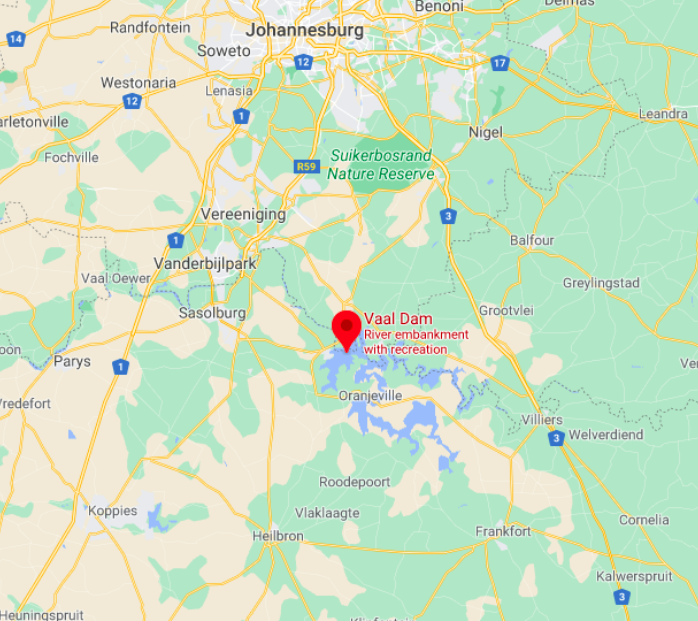
A scathing report by the South African Human Rights Commission (SAHRC) on extensive wastewater and sewage pollution of the Vaal River system over many years has identified multiple serious failures by the Emfuleni Municipality southwest of Johannesburg that violate human rights and have left a critical part of South Africa’s infrastructure polluted beyond acceptable standards, and possibly beyond repair.
Following an investigation sparked by local media reports of raw sewage flowing into the Vaal River, its tributaries and the reservoir behind the Vaal dam as well as into the properties and homes of local residents, the report paints a picture of a dilapidated wastewater system that was allowed to deteriorate over decades under mismanagement by inept municipal leadership.
It finds that the discharge “violated a number of constitutional rights which includes the rights to: human dignity, freedom and security of the person, an environment that is not harmful to health or well-being, not to be deprived of property, health care, food, water and social security, just administrative action and the rights of children to be protected from maltreatment and degradation.”
In setting out its recommendations, the report calls for urgent and comprehensive intervention by regional and national government to stop the ongoing problem, assess the needs for cleaning and rehabilitating the Vaal and investigate a long list of possible offences committed by the municipality’s public servants and administrators. It also wants “the Vaal River and the associated water infrastructure be declared as critical infrastructure” in order to prevent a repeat of the issues.
According to the February 2021 report, the municipality does not dispute its “responsibility or that it had not fulfilled the responsibility, and instead conceded that these failures were attributable to its failing wastewater infrastructure”.
The findings identify numerous attempts at intervention and assistance, including substantial financial support, by regional and national authorities, all of which were frustrated amid what the report terms “a lack of skills within the municipality to effectively manage the challenges” and its failure to “appoint skilled workers and/or develop capacity for employees to be able to provide the necessary services”.
As well as the ecological harm and human-rights violations detailed, the report also identifies economic damage to the area resulting from a decrease in tourist and recreational activities on the river.
The commission has given all parties 60 days to respond to its recommendations.
New 2050 Vison For Water Sector In England
Water UK, the industry association representing water and wastewater companies in England, UK, has launched a public consultation on a long-term vision for the country's water sector.
A discussion paper, “Developing a 2050 Vision for the Water Sector”, is described as the first step in a programme to accelerate and broaden the sector’s role given recent unprecedented challenges
Population growth, droughts, floods, biodiversity loss combined with the effects of climate change have put increasing pressure on water resource and aging infrastructure.
The Vision 2050 paper outlines the English water industry’s ambition to become a global environmental leader: to stewardship improvement and protection of England’s water resources, to act on the impacts of climate change and to protect its customers long-term interests.
Christine McGourty, Water UK Chief Executive, commented: “The launch of today’s public consultation on our 2050 Vision for the water sector in England is the beginning of a dialogue, with those inside and outside of the industry, on how we collectively address the challenges we face, such as the climate emergency.
“We welcome views from all individuals and organisations in helping us develop a Vision which the sector can stand behind for the long-term benefit of customers, society and the environment.”
Rachel Fletcher, Chief Executive of England's regulator, Ofwat said: “The water sector faces profound challenges, not least from climate change, population growth and changing customer needs. It’s vital that companies, regulators and government redouble their joint work to unlock the industry’s full potential to benefit customers, communities and the natural world while keeping bills affordable.
Emma Clancy, Consumer Council for Water (CCW) Chief Executive, said: “We welcome the water industry’s efforts to deliver a clear Vision to overcome the mounting pressure on its services and the environment and we want to see future – as well as current – consumers have a stake in developing those plans".
Finance For Water Cooperation

Prioritising Water Infrastructure In Africa's Post COVID-19 Recovery
The water Diplomat Voices is a series of guest columns written by participants in different parts of the international water community.
His Excellency President Jakaya Mrisho Kikwete, 4th President of the Republic of Tanzania, writes here in his capacity as Chair of Global Water Partnership Southern Africa - Africa Coordination Unit:
The unprecedented events of 2020 have laid bare the systemic inequalities that hold back progress on our beloved continent. In the face of the overwhelming challenge that the Covid-19 pandemic has brought to Africa, the need for urgent and significant investment in African water and sanitation resources has never been clearer.
Clean water and sanitation are the first line of defence against infection and disease. And yet more than 300 million Africans are without access to potable water, and over 700 million are without access to adequate sanitation.
Access to sustainable and reliable clean water is an indispensable social and health need. Resilient economic development, of the sort that will be critical in the post-Covid-19 era, is dependent on water security. We know Africa’s economic resilience will be tested in the aftermath of the pandemic.
The OECD has warned of multiple shockwaves, both short- and long-term, due to lower trade and investment, demand slumps for our exports, and a continental supply decline. As we stand today, our current investment levels in water infrastructure to meet our social and economic needs are insufficient.
The African Development Bank estimates that $64 Billion USD in water infrastructure investment is required annually to achieve water security for all. Actual investments stand between $10 and $19 Billion USD per year.
Compounding the social and economic water challenges we are facing is climate change, which will wreak more frequent and more severe havoc on our cities, our villages, our crops, our live stocks, our built infrastructure – our livelihoods. The African Climate Policy Centre at the United Nations Economic Commission Africa (UNECA) expects our collective continental GDP to decline by as much as 5% against a 2% increase in average temperatures.
To rebuild a fair, prosperous, and peaceful society, and achieve our Sustainable Development Goals, we must address our deficit in water infrastructure investment – from private and public sources.
Opportunities for positive change do exist. During the 34th Ordinary Session of the Assembly of Heads of State and Government of the Africa Union in Addis Ababa, Ethiopia earlier in February 2021, Heads of African State formally adopted the progressive Continental Africa Water Investment Program (AIP), as part of the second phase of the Africa Union Development Agency’s Programme for Infrastructure Development in Africa Priority Action Plan (PIDA-PAP 2).
PIDA-PAP 2, a strategic continental portfolio of projects shortlisted for implementation between 2021 and 2030, is an opportunity to accelerate investment into climate-resilient regional, transboundary, and national water infrastructure – such as dams, water transfer systems, irrigation systems, water management information systems, water supply, and sanitation infrastructure – which is critically needed to meet Africa’s growing socio-economic needs.
With the full weight of support and leadership from our continent’s highest leadership, the AIP can leverage and influence $30 Billion USD in climate resilience SDG 6 water investments and create at least 5 million jobs.
The programme is designed to directly address two significant obstacles African countries face in attracting investment in water: lack of financing and inadequate preparation of bankable projects, which are intrinsically interlinked.
African water projects fail to attract funding, specifically from the private sector because planning, testing, reporting, and implementation at various stages of the project cycle falls short of financiers’ requirements. That is one of the chief reasons why just $3 Billion USD of private sector funding was invested in Sub-Saharan African water projects since 1990, compared to $41.7 Billion USD in East Asia and the Pacific, and $36 Billion USD in Latin America and the Caribbean over the same period.
In order to make African water projects more attractive to the private sector, the AIP will facilitate accelerated project preparation, develop regional and country investment programmes, and develop a business case for high-level policy, decision makers, and investors. The goal is to catalyse investments that improve economic opportunities, create jobs, and better people’s lives.
Equally important is accountability, transparency, and access to reliable up-to-date data. We have seen the success of public accountability tools such as the Africa Leaders Malaria Alliance (ALMA) Scorecard for Accountability and Action, which measures country progress in malaria interventions, maternal and child health, and neglected tropical diseases. The AIP proposes a similar accountability instrument to track and support country-level progress in attracting water investments and delivering essential water services.
The opportunities presented by the AIP are not linked to achieving water security alone. The gains we stand to make can contribute to a more prosperous continent, through industrialisation and economic growth. January 2021 marked the momentous start of the Africa Continental Free Trade Area, the largest in the world by the number of countries participating, which has the potential to generate $450 Billion USD in income gains for our continent, bringing 30 million people out of extreme poverty and increasing the incomes of 68 million others who are living on $5.50 USD/day or less.
But trade cannot flourish without industry, without robust economic growth, without infrastructure. Investment in climate-resilient water infrastructure that meets our economic and social needs must become a priority to our leaders. The AIP presents us with a roadmap to achieve our potential for present and future generations of Africans.
UN Adopts Environmental-Ecosystem Economic Accounting Approach

The United Nations has adopted a new System of Environmental-Economic Accounting – Ecosystem Accounting (SEEA EA) to replace GDP as a measure of economic prosperity, ensuring that natural assets, such as wetlands and water filtration ecosystems, are included in value calculations that impact policy and decision-making at every level.
The framework was adopted at the 52nd session of the UN Statistical Commission earlier this month following a decade-long development process involving nearly 600 experts.
Welcoming the adoption as a historic step, UN secretary-general António Guterres said: “We will no longer be heedlessly allowing environmental destruction and degradation to be considered economic progress.”
Described by Karin Kemper, global director, environment, natural resources and blue economy global practice at the World Bank as “a giant leap towards measuring nature’s contributions to the economy”, the new framework recognizes that ecosystems deliver important services that generate benefits for people and are assets that must be maintained.
Kemper cites an example from Cambodia, where the World Bank used ecosystem accounting to quantify the services offered by its forests – water, agriculture and hydropower, ecotourism and carbon storage – for the Pursat River Basin in the Cardamom Mountains.
“The analysis revealed that economic gains from preserving the forests was five times higher than cutting them down for charcoal production or agriculture,” she writes, continuing: “It also found that the benefits to other economic sectors derived from forest ecosystems are 20 times higher than the cost of maintaining them.”
Other examples cited by the UN include one in South Africa, where ecosystem extent and condition accounts for rivers have informed the National Water and Sanitation Master Plan.
The SEEA EA is built on five core accounts derived from the functions of ecosystem assets and the services they produce. The first measures the extent of the ecosystem over time, the second tracks its condition, the third and fourth are so-called “service flow accounts” (physical and monetary) that record supply and use by economic units such as households, businesses and governments, and the fifth, called the monetary ecosystem asset, holds information on stocks and changes in the stocks of ecosystem assets, including degradation and enhancement.
The system also supports something called “thematic accounting” organised around environmental themes such as climate change, biodiversity, oceans and wetlands.
The adoption of the SEEA EA comes just one month after publication of the Dasgupta Review commissioned by the UK Treasury. Its examination of “The Economics of Biodiversity” concludes that there is a need for a radical move away from economic thinking that measures progress in terms of GDP.
$71.5 Million USD For Dubrovnik Water Systems
The European Commission has approved a multi-million dollar investment in Dubrovnik Waterworks from the Cohesion Fund (a European Commission initiative aimed at providing support and promoting sustainable development in low income countries).
The $71.5 Million USD investment, approved 2 March, will be used to improve Dubrovnik’s water supply and upgrade wastewater management infrastructure across the city.
EU Commissioner for Cohesion and Reforms, Elisa Ferreira, commented: “This project will not only provide inhabitants with the essential access to clean water and reduced water losses but it will also boost the commercial and touristic attractiveness of the area, thus improving the local socio-economic development. Once more, Cohesion policy is about delivering concrete solutions and additional benefits to local challenges.”
Although the wastewater section of the investment will cover Dubrovnik agglomeration alone, districts out with the city whose water is supplied by the Zaton-Orašac-Elafiti and Mioševići-Visočani systems will also benefit from the water supply upgrades.
This investment will not only protect Dubrovnik’s water supply from pollution and contamination meaning that residents will have access to safe drinking water, but it will also boost the city’s economy by removing the costs associated with the upkeep and maintenance of old and unreliable water infrastructure.
New Mechanisms For Hydrodiplomacy
Water Diplomat Voices: "The Value of Water Revisited"
OOSKAnews Voices is a series of guest columns written by participants in different parts of the international water community.
On World Water Day 2021, Alexis Morgan discusses our framing of the value of water, and revisiting our language around this.
Alexis leads WWF’s global water stewardship efforts, a role that includes oversight of WWF’s Water Risk Filter tool. A global thought leader on water stewardship, he has authored numerous publications over the past 15 years and developed corporate partnerships on water across a range of sectors. He currently sits on CDP Water’s advisory board and is the chair of the board of the Alliance for Water Stewardship. He lives in Vancouver, Canada and holds a masters in hydrology from the University of Toronto and an MBA from the Schulich School of Business at York University.

Take a moment and clear your mind. If someone were to say to you: “swamp”, “bogged down”, “flooded”, or “drought” – even “wet”, what feelings come to mind. Do they bring to mind positive notions or are you reminded of negative things? Deep down, do we all need to recalibrate how we value water?
Language is only one way in which we need to rethink valuing water; we need to dig deeply to also consider the process of valuation. When you think about how water brings value to your life, what comes to mind? In a year when the value of water has been perhaps been focused on how water (& soap!) is critical in the fight against disease, perhaps it brings to mind the social value of water to provide us with health and well-being. Perhaps you are one of the growing many who continue to see evidence of how water, climate and biodiversity work together to preserve ecological value. Or how clean and dirty water often parallel the growing inequity of economic value distribution. The value of water can take many forms – and therein lies one of its most powerful traits.
While under the spotlight this year, we’ve long talked about the value of water, so it is perhaps a good time to step back and reflect on what we put out over a half a decade ago when we [WWF] published our framework thinking on this issue: The Value of Water (WWF & IFC, 2015). This discussion paper recognized and outlined not only differ forms of value (at differing scales), but also began to link the narratives of risk and opportunity to water stewardship.
Furthermore, the framework began to outline thinking on how to begin to better measure the value of water – be it at a corporate level or beyond.
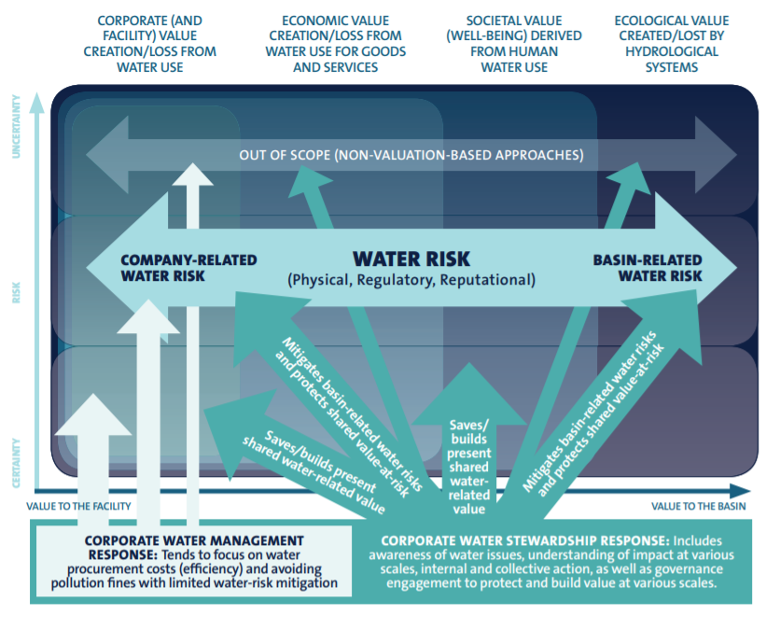
Since this time, WWF has seen a lot of people grappling with the same kinds of questions and challenges:
- How do we get financial markets to better value how water impacts financial value?
- How do we get regulators and central banks to better value how water impacts economic value?
- How do we get governments to better value how water impacts societal well-being value?
- How do we get humanity to better value how water impacts ecological value?
Efforts ranging from the Task Force for Climate Related Financial Disclosures (TCFD) to the emergent Task Force for Nature Related Financial Disclosures (TNFD) have started to advance these issues. The understanding of the linkages between water (as a front-line impact of climate), adaptation and the value of water resilience has grown.
Indeed, we have seen tools emerge to better explore how various future climate-driven water scenarios may impact a company’s activities. With World Water Day 2021, we [WWF] are also launching a new report with Germany’s largest food retailer Edeka, looking at how scenarios from WWF’s Water Risk Filter can be used to explore how water may affect global agricultural supply chains. Companies such as Edeka are explicitly recognizing that understanding future water risks to key agricultural commodities is central to preserving financial (shareholder) value.
In the coming week, WWF will also be releasing a second report on how water (and its contextual nature) can be better integrated into corporate strategy. This report, which will be accompanied by a linked report on contextual water target setting, emerged out of our learnings that target-setting, borne in a risk-mitigation logic, misses the point on value. Put differently, if a company is to maximize the value creation from water, it is critical that water be linked back to corporate strategy. As one considers how to create value within a corporate strategy, the lenses from the Value of Water framework become quite useful. Considering how water can enhance societal and ecological value is a central aspect to driving “purpose”, an issue that is increasingly being adopted by the world’s most sustainable (and often best performing) companies.
Yet our (WWF's) Value of Water report was also rooted in the notions of different forms of value – not all value is monetary. Our recent report The World’s Forgotten Fishes highlighted that freshwater fish do not simply represent an important source of protein for many countries, but rather represent something much, much more. They are a source of inspiration, they are pets and companions, they are the basis for treasured past-times (fishing), and they are massively under-valued. As a core part of our freshwater ecosystems, freshwater fish embody the value of water in many regards: critical to humans and life, yet criminally undervalued and forgotten.
As we’ve explored the issue of value over the years, the issue of value to whom has always been central. Who provides value; who receives value. Linked to this, for a long time women have been disproportionately impacted by water challenges and like water, they are systematically undervalued in society. To better value water, we must link issues together such as women, water, and value. That’s precisely what we’re seeking to do under our #ApparelOpenLetter work with a consortium of actors, including the US Water Partnership in April when we will have a series of panels focusing on how women can be forces of value creation through water in the apparel sector. Stay tuned!
Reflecting upon our journey in #ValuingWater, I believe we need to revisit our framing of value as much as we must revisit our language. Swamps are life-giving sources of huge ecosystem service benefits. Bogs are some of the most treasured assets for trapping and sequestering carbon. Floods deliver critical nutrients, sediment to protect our coastlines and replenish our groundwater systems. Droughts too can be positive; they lower pollution levels, and help to “reset” systems (not unlike forest fires) and establish conditions for life to return and flourish again. We need to see freshwater systems in a new light, and bring forth new, positive associations that indeed “value” water.
No matter who we are, all of us value water in one way, shape or form. There is ultimately no way to escape how fundamentally important and beneficial water is – it is the basis of life, so what more must one say. And yet through our words, we undervalue water on a daily basis. Through our actions, we undervalue water in our investments and even our business strategies. We must reconsider water as not just a risk, but as an opportunity. So whether you are a farmer, a fisher, a factory owner, or a financier – let’s rethink water. Consider all of the benefits it brings to your life. You might even improve your opinion of yourself. After all, you’re more than 60 percent water.
Women in Water Diplomacy: Middle East and North Africa - New Report
A new comparative study conducted by the Geneva Water Hub and partners identifies the similarities and the differences in the challenges faced by female water experts across Egypt, Jordan, Lebanon, Morocco, Palestine, and identifies capacity building requirements with respect to various skills of a 21st century water diplomat.
Read full report HERE.
The report is a collaborative effort of the Global Water Partnership -Mediterranean (GWP-Med) and Geneva Water Hub (GWH) and the Union for the Mediterranean (UfM). The work included technical “mapping” on the current status and challenges facing women in water diplomacy/ and transboundary water cooperation settings. Efforts capitalised on the methodology used for a similar mapping exercise undertaken in 2018 in Jordan, Lebanon and Palestine.
The current project updated previous findings and included Egypt and Morocco in its scope.
The report establishes a “baseline” for each country that includes progress to date, constraints experienced, and an overall assessment of the current “status” of women in the water sector in the respective country.
The study produced detailed comparative information using education and experience parameters and interrogated almost 100 water professionals in the region examined.
A 15 March virtual launch session included comments from the speakers as well as input from the funders and other key contributors.
The date of 15 March was chosen as virtual “bridge” between International Women’s Day on March 8 and World Water Day on 22 March.
Philippines Georeserve Project Wins Water ChangeMakers Award
The winners of the Water ChangeMaker Awards were announced at the virtual Water Anchoring Event of the Climate Adaptation Summit held on 25 January 2021.
More than 350 individuals and groups from over 80 countries submitted their change journeys, highlighting the water decisions they have made to improve climate resilience. Out of the 78 journeys submitted, 12 of them made it to the final stage of the competition before 4 winners were chosen. Out of the 12 finalists, 2 of them received a Peoples’ Choice Award.
The aim of the Water ChangeMaker Awards is to recognise and celebrate organisations and individuals that make smart water management decisions to safeguard resources in response to the current climate crisis, and to build a community in which ChangeMakers can contribute and learn from one another to promote positive change.
Howard Bamsey, chairman of the Global Water Partnership, said: “We wanted to highlight that within our global network at the local level there are many stories of successful partnerships in confronting the multiple and related global crises we face, especially climate change.”
The first-place winner of the Water ChangeMaker Awards was ‘The Masungi Georeserve Story: Restoring forgotten watersheds through youth-led movements’. This project, which was largely led by young people under the age of 30, aims to restore the Upper Marikina watershed in Rizal, Philippines to prevent future landslides and flooding and to protect it against long-standing threats such as illegal mining. The Masungi Georeserve project has gained massive support from people across the world, with more than 200,000 followers on social media.
In joint second place was the ‘Water Producer Project in the Pipiripau Watershed: building resilience in a water-conflict area in Brazil’ and the ‘Watersheds and Cities: Social participation to improve the health of ecosystems and water provisions’. The Water Producer Project is aimed at reducing water conflicts in the Pipiripau watershed through the use of integrated water resource management (IWRM), efficient soil and water management practices and good governance. Similarly, the Watersheds and Cities project focuses on improving water management in watershed across Mexico by forming alliances with local partners based on “planning, resource investment and institutional collaboration”.
Finally, third place was awarded to ‘Watershared Bank: Funding the conservation of water factories in the Tropical Andes’ a journey which not only provided funding opportunities to allow indigenous communities in Latin America to implement their own water conservation programmes but has also helped to improve human health by providing food and water security in the region.
The Water ChangeMaker Awards also launched two People’s Choice Votes, which were selected from the 12 finalists, in partnership with the Climate Adaptation Summit. The winners were ‘Mother parliaments advocate for climate resilient WASH facilities’, and the African People’s Choice award went to ‘Strengthening climate resilience in the Kafue sub-basin’.
All 350 of the Water ChangeMakers will continue to have an input in future events and publications throughout the year, allowing others to learn and take inspiration from their experiences to promote positive change in terms of climate resilience.

Exploring The Non-market Value Of Water To Society: aquaNOW Audience
Water is essential for human life. For food, energy, our environment and ecosystems, playing a central role in our economies, from agriculture to energy production, and manufacturing to tourism.
But what about those vital Non-Market Values of Water? Artistic and Social? Human Peace? Health and Wellbeing? Spiritual and Philosophical?
“We don’t have dominion over the planet and its ecosystems, in fact we are part of that ecosystem and we depend on nature for everything that is important to us in life – socially and economically,” said hydrologist James Curran, continuing, “And we can’t run the planet. We’re actually very bad at running the planet. We should let mother nature get on with it.”
Curran, who is a former chair of the James Hutton Institute and currently serves on the board of the Green Purposes Company, was describing his view of a third outrage to add to Freud’s two great outrages of humankind’s self-perception, and kicking off a wide-ranging discussion of the “non-market value of water to society” in the aquaNOW Audience to mark World Water Day.
aquaNOW Audience Moderator David Duncan invited six panelists, including an academic, a man of the cloth and an artist, to explore the less obvious artistic, social, spiritual and philosophical values of water and the contribution they make to human peace, health and wellbeing.
Dismissing mind models that place economic benefit on an equal footing with social and environmental benefits, Curran described the economy as a social construct, arguing: “The economy is there to serve us.”
For Elliot Hurst, water researcher and Scotland, Hydro Nation PhD Scholar, the values of water are closely related to how we engage with it. Echoing the point made by Curran on the economy, he said: “Water values are something that we create and that we decide upon.” The native New Zealander, who grew up drinking rainwater and surrounded by the Te moana nui a Kiwa (the Pacific Ocean), called for nature-based solutions to current manmade problems, reflecting upon the way indigenous peoples have thought about water for centuries as a “connecting fluid that holds all life together”.
This analogy was lauded by thought-leader and podcaster from Denver, Colorado, Will Sarni, who often refers to water as “the glue of humanity”. Welcoming what he described as “a different conversation about water”, he said: “Unless we [as water experts] can connect with humanity on a very visceral level, it’s going to be an echo chamber.”
“What we’re talking about is the local nature of water,” said Sarni. “Unlike carbon, water is not fungible – it is local, it’s personal.” Describing developments over recent decades in his native New York City that embrace its connectivity to water as “incredibly powerful”, he went on to say that water connectivity can transform people and serve as a catalyst for changing public policy. “We have an abundance of water, but we mismanage it so much that we don’t have access to water in an equitable fashion,” he said, urging people to “embrace the arts and embrace connectivity” and arguing that “the non-economic value of water is our power to do better”.
Referencing the spiritual roots of human relationships with rivers as symbols of cleansing and purification, James Curran talked of how industrialisation caused many cities, such as this year’s COP26 host Glasgow, to turn their back on the rivers from which they grew. Through industrialisation “the common good had become a private good”.
Recent efforts to undo the industrial damage done to Scotland’s waterways is evident in the work of Scottish artist Lesley Banks, whose residency with Scottish Canals resulted not only in an impressive body of work, but also in a new personal relationship with manmade waterways. Having previously spent time painting the canals of Venice and Amsterdam, Banks pointed to long-standing historical links between artists and water, citing Monet, van Gogh, Turner and Hokusai as examples of how artists are drawn to water.
Banks described Scotland’s canals that were once “industrial, dirty and hard-working”, but have since been “gentrified” and are now used for tourism, walkers, joggers, cyclists and kayaking. Calling the transformation amazing, she spoke enthusiastically of people enjoying these well-used places, of a “tow-path etiquette” that encourages social greetings and interaction, adding: “There’s a real camaraderie … it’s peaceful, it’s flat, you can’t get lost … it’s just this real asset to the community.”
This local perspective on water values was a common thread in the contributions made by all the panellists, who each came to the discussion with individual experiences from different parts of the world.
Rev Len Abrams is a civil engineer and water conservationist from Kenya, who was ordained as a Church of England priest in 2014. In his early work in South Africa during the apartheid era, he witnessed how water is an area of conflict, power and deprivation. While recognising the symbolic and spiritual significance of water across cultures, he stressed the significance of water values in everyday life, saying: “From a living faith perspective [the value of water] has to be real in how that impacts people’s lives,” continuing, “Disparity in water access is one of the biggest unseen travesties,” and arguing that the value of water can’t be dissociated from a whole range of other inequities globally.
It is in this key area of water as a source of conflict and inequity that Jean Willemin of the Geneva Water Hub has seen important developments that demonstrate how water can also serve as an instrument for peace. He cited the Senegal River Basin Development Organisation (OMVS), set up in the 1970s, as a positive example of promoting water as a common good. By merging the strategic interests of the four countries, Guinea, Mali, Mauritania and Senegal, the OMVS shares income derived from the basin from structures such as hydroelectric dams and water distribution assets. It is an approach that Willemin argues has led to strong integration among the four nations – integration that was put to the test in 1989 when a local conflict escalated into a confrontation between Senegal and Mauritania. Willemin: “All diplomatic doors were shut down. Only one remained open, and it was this basin agency, because water keeps on flowing and you have to manage it.”
The one-and-a-half hour aquaNOW Audience ended with the each of the panellists offering their personal wish list for how humanity should value water. Jean Willemin called on everyone to think at the local level on how to place greater value in cooperation to achieve sustainability, while scholar Elliot Hurst stressed the importance of water for playing and having fun. Rev Len Abrams’ wish list was relational, calling for the building of relations between humanity and nature, predicated on better relationships between people.
Artist Lesley Banks had one simple, personal plea. Listing the health benefits of water, she urged people to drink more of it. Following on from that, James Curran felt that all organisations that have anything to do with water should “have a Lesley … an embedded artist and communicator who can break down barriers and let people understand how important nature is to every single one of us”.
Finally, after calling on water practitioners to “challenge the status quo and have a bias for action,” Will Sarni agreed with Lesley’s sentiment on hydration, with the added proviso that we also “drink more whisky”.

Biden Invites World Leaders To April Climate Summit
US President Joe Biden will host a Leaders Summit on Climate on 22 and 23 April, and has invited 40 leaders to take part in the virtual event, from the world’s biggest emitters to those most vulnerable to the effects of climate change.
A statement issued by the White House also heralded forthcoming new US climate targets, saying: “By the time of the Summit, the United States will announce an ambitious 2030 emissions target as its new Nationally Determined Contribution under the Paris Agreement".
The White House is framing the summit as a key milestone on the road to COP26 this November in Glasgow, Scotland and is urging participants to use it as an opportunity to make more ambitious climate commitments.
It outlines six key themes it wishes to cover, among them the economic benefits of climate action, with an emphasis on job creation and the transition to a clean-energy economy. It also wants to “showcase subnational and non-state actors that are committed to green recovery” and “mobilise public and private sector finance to drive the net-zero transition".
Water is likely to feature in several of the themes, in particular those addressing infrastructure, preparedness, nature-based solutions, resilience and global security.
The move follows the clear recommitment to the climate emergency made by US climate envoy John Kerry at the Climate Adaptation Summit hosted by the Netherlands in January shortly after Biden’s inauguration, where Kerry announced: “We’re proud to be back,” adding: “We come back with humility for the absence of the last four years and we’ll do everything we can to make up for it".
In addition to the 17 countries that account for around 80 percent of global emissions such as China, Russia and India, the Leaders Summit hopes to include voices from “countries that are demonstrating strong climate leadership, are especially vulnerable to climate impacts, or are charting innovative pathways to a net-zero economy”, according to a White House statement.
The invitation list includes several small island nations such as Antigua and Barbuda, the Marshall Islands and Jamaica. The leaders of Gabon, DRC, Vietnam and Indonesia are also among those invited, alongside a number from South America, including Jair Bolsonaro of Brazil.
